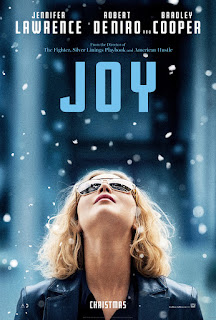This review was first published by The Student Pocket Guide
The main question on everyone's lips at the moment seems to be “will Leo finally win an Oscar?!”. In the past, DiCaprio has been nominated for six Academy Awards and has won...well, none. But all that might be about to change thanks to his latest film, The Revenant which is as brutal and intense as films come.
The main question on everyone's lips at the moment seems to be “will Leo finally win an Oscar?!”. In the past, DiCaprio has been nominated for six Academy Awards and has won...well, none. But all that might be about to change thanks to his latest film, The Revenant which is as brutal and intense as films come.
Just
in case you were wondering, the word “revenant” is a noun meaning
a person who returns after a length absence. Now we've cleared that
up, on to the film inspired by the (supposedly) true story of Hugh
Glass, a nineteenth-century fur trapper who was attacked by a bear
and left for dead by his companions in the wilderness of the American
Frontier. In the film, Glass (DiCaprio) is bent on avenging the death
of his son who is killed by John Fitzgerald, one of his fellow
explorers (Tom Hardy), and drags himself – quite literally – over
some 200 miles in search of safety and revenge.
In
essence, what you have here is Bear Grylls meets Touching the
Void, with a large dose of confronting violence and harsh,
unforgiving landscapes. Directed by Mexican film-maker Alejandro
González Iñárritu, The Revenant has become notorious in the
media for its punishing schedule, spiralling budget, unpleasant
shooting conditions and Iñárritu unflinching pursuit of the film he
envisioned in his mind. DiCaprio's commitment to the role (which
included sleeping in a dead animal carcass, eating raw bison liver
and enduring prolonged exposure to cold locations in Canada and
Argentina) is unflinching and almost defiant: at one point, he looks
directly at the camera as if to say “what more can I do for that
Oscar?”.
Iñárritu
and cinematographer Emmanuel Lubezki have done a fantastic job of
transporting the audience from the warm comfort of their cinema seats
and placing them in the bitter, cruel cold of the American Frontier –
a land dominated by snow, ice and imposing mountains. The success of
this immersive experience is down to several factors. From the very
beginning, Lubezki's camera scythes through the landscape in an
apparent single-take, a technique which comes into its own in the
sequence which sees Glass come under attack from a grizzly. My toes
genuinely curled during the encounter and I would wholeheartedly
believe you if you told me Leo was attacked by a real bear.
From
a technical perspective, Lubezki's eye for capturing the natural
landscape in all its majestic and intimidating glory is astounding
(the majority of the film was shot using natural light) and he allows
the camera to approach the actors' faces in tight close-up. The
camera gets so close, in fact, that their breath fogs the camera lens
– usually something which shatters the cinematic spell. In this
case, however, it only serves to drag the audience in closer with the
characters, experiencing their pain and suffering. From plunging down
icy rivers, to weathering snow storms and horrendous wounds, the
plight of Glass is not just presented to the audience, it conscripts
them into involvement.
Iñárritu
has a considered sense of narrative pacing which works well to
fully-involve the audience. At 2 hours, 36 minutes, it is a long
film. But this running time rarely feels indulgent: the beautiful
cinematography and assured performances prevent that. DiCaprio's
hurt, anguish and determination is compelling to watch, and Tom
Hardy's gruff and self-serving Fitzgerald fits well with the
supporting cast of other British and Irish actors (Domhnall Gleeson
as a by-the-book army Captain and Will Poulter as an impressionable
young fur-trapper).
The
film's depiction of violence – both from animals and from
encounters with the Native Indian population – is uncompromising
and graphic. It does, however, fit well with the stark reality of the
film. America in 1823 was a violent place, and man was
frequently at the mercy of the elements. The denouement between Glass
and Fitzgerald had me flinching and gripping my seat with
anticipation as those long takes refused to let the audience go from
their icy grip.
The
Revenant is bold, shocking and
committed film-making. I left the cinema feeling exhausted and
convinced that Leo deserves that Oscar. There's really nothing more
he can do.
Clapperboard Rating: * * * * *
Clapperboard Rating: * * * * *


